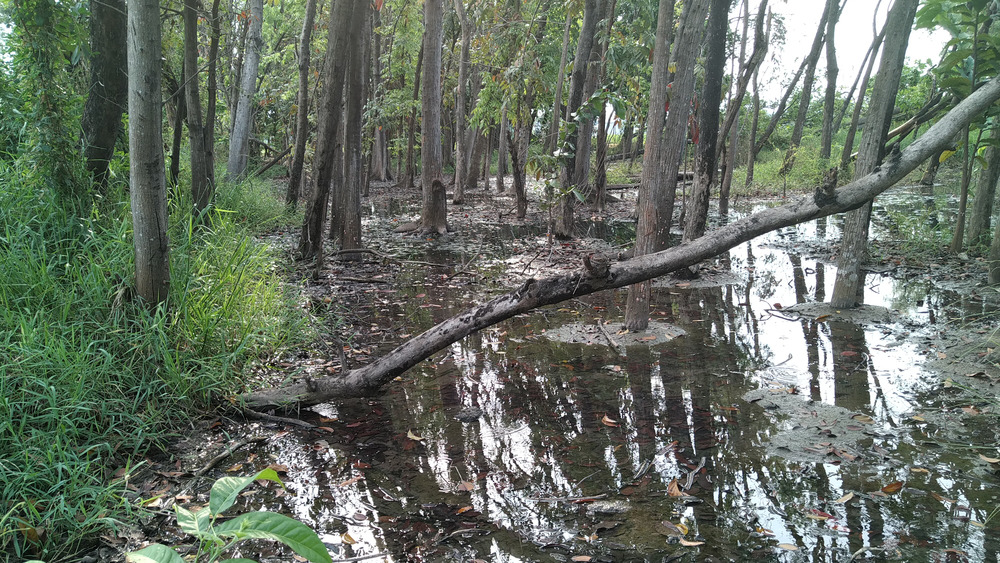What Happens To Your Body After 19 Days In Water
On February 19, 2013, the body of Canadian tourist Elisa Lam was discovered in a water tank on the roof of the Cecil Hotel in downtown Los Angeles. According to the Los Angeles Times, the coroner ruled her death an accident, but the details of her disappearance and discovery of her body several weeks later have been shrouded in mystery ever since. What happened to Lam back then is still unknown and is now the subject of the new Netflix docuseries Crime Scene: The Vanishing at the Cecil Hotel.
Lam had gone missing on January 31. Security footage from the hotel showing her presenting strange behavior — getting on and off the elevator, making strange gestures, talking, and at times appearing to hide — added another layer of mystery to the incident. The Los Angeles County Coroner's Office said that her bipolar disorder played a role in her death, but did not elaborate on exactly how. Her body was found naked, with her clothes at the bottom of the tank, after 19 days, and the autopsy report said it was "in moderate decomposition." But, what exactly does that mean? Let's take a look at what happens to the human body after 19 days in the water.
Your body is not a pretty sight after 19 days in the water
What happened to Elisa Lam is telling of what weeks in the water will do to a body. As you might expect, there is significant wrinkling of the skin of the palms, fingers, toes, and soles of the feet. Things like "greening" and "marbling" of the skin occur in other parts of the body, and the scalp and hair will easily slough off "with slight pulling." The head becomes bloated and the eyes bulge out. The skin will basically separate from the rest of the body, something referred to as "slippage" in Lam's autopsy report.
According to an article in the journal Academic Forensic Pathology, and posted to the National Center for Biotechnology Information (warning: the article contains some graphic images), the decomposition process is slowed by the water, due to the lack of oxygen, but it gets going pretty quickly once the body is removed. Understanding how this environment changes a body's decomposition is key to a forensic pathologist's job. Now you know a little bit more of what happens to a body after weeks in the water, and it's not a pretty sight. So be careful out there.

